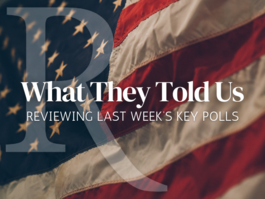Obama and His Rivals Duck the Entitlement Crisis
A Commentary By Michael Barone
Some of society's most intractable problems come not from its failures but from its successes. Often you can't get a good thing without paying a bad price.
A prime example is our public old-age pension system, Social Security. It has been completely successful in wiping out poverty among the elderly. Old ladies no longer have to eat cat food to survive.
But we pay some prices for this. One is a lower savings rate. China has a humungous savings rate in part because it has no reliable old-age pension system. People have to save if they don't want to starve.
In the United States, we got out of the habit of saving. In the decade up to the financial crash of 2008, the U.S. savings rate fell below zero.
We felt comfortable borrowing on the supposedly ever-increasing values of our houses to support current and sometimes lavish consumption. Now we're paying the price.
But even if our savings rate rises back to the level of, say, the 1980s, it still may be lower than optimal.
The longer-term price any society pays for a public old-age pension system is lower birth rates. Farmers had large families in order to provide additional labor for their working years and sources of income for their dotage. So did factory workers a century ago.
In Western Europe, birth rates have fallen below the rate necessary to replace population -- in some countries, far below. The American birth rate has remained, barely, above replacement rate largely because of immigration. But immigration has slumped during the recession and may never return to the 1990-2008 level.
Unfortunately, under Social Security, like most public pension systems, current pensions are paid for by current workers. As lifespans increase and birth rates fall, the ratio of pensioners to active workers falls toward one-to-one.
That's not enough to support the elderly in anything like the style to which they have been accustomed, unless tax rates are sharply increased. And sharply higher tax rates, as Western Europe has shown over the last three decades, reduce long-term economic growth.
That's the problem, often abbreviated as "entitlements," facing our political system.
Some politicians have tried to address it. Fresh from his re-election victory, George W. Bush sought changes in Social Security in 2005. The obvious reform, then as now, was to reduce high earners' pensions by adjusting them upward by inflation rather than wage growth.
But Democrats would have none of it. As Bush's job approval plummeted in the wake of Hurricane Katrina and lack of success in Iraq, the issue was quietly dropped.
This year, Republicans addressed entitlements again, in the budget prepared by House Budget Chairman Paul Ryan and approved in the House.
His proposal was to shift Medicare from the current plan to "premium support," in which seniors would get subsidies to pay for their choice of competing insurance plans. This is similar to the Part D Medicare prescription drug program that has won wide acceptance and has cost far less than projections.
Once again, Democrats have responded negatively. They credit their "Mediscare" tactics for a special election victory in a Republican House district in upstate New York.
What's interesting is that, in contrast to 2005, we have had nothing in the way of presidential leadership on this issue. Barack Obama, hailed by some conservatives and most liberals as a pragmatic problem-solver, has been happy to play politics on entitlements as well as on the budget.
He blithely ignored the recommendations of his own commission headed by Erskine Bowles and Alan Simpson. He has said since he would take a look at raising the Medicare eligibility age -- it's now lower than the Social Security age.
But anyone can take a look at a proposal. We pay presidents a good salary to lead, not just to look.
So far, the Republican presidential candidates have not done much leading on entitlements, either. They have tended to take a gingerly approach to Paul Ryan's Medicare proposal, and Newt Gingrich even trashed it.
The conventional wisdom is that this is simple political prudence. Don't give the other side a juicy target.
But we are faced not only with a huge short-term budget problem but with the prospect of a Western European future of an enlarged government, ever higher taxes and lower growth. Is that really what American voters want?
Michael Barone, senior political analyst for The Washington Examiner (www.washingtonexaminer.com), is a resident fellow at the American Enterprise Institute, a Fox News Channel contributor and a co-author of The Almanac of American Politics.
COPYRIGHT 2011 THE WASHINGTON EXAMINER
DISTRIBUTED BY CREATORS.COM
See Other Political Commentaries.
See Other Commentaries by Michael Barone.
Views expressed in this column are those of the author, not those of Rasmussen Reports. Comments about this content should be directed to the author or syndicate.
Rasmussen Reports is a media company specializing in the collection, publication and distribution of public opinion information.
We conduct public opinion polls on a variety of topics to inform our audience on events in the news and other topics of interest. To ensure editorial control and independence, we pay for the polls ourselves and generate revenue through the sale of subscriptions, sponsorships, and advertising. Nightly polling on politics, business and lifestyle topics provides the content to update the Rasmussen Reports web site many times each day. If it's in the news, it's in our polls. Additionally, the data drives a daily update newsletter and various media outlets across the country.
Some information, including the Rasmussen Reports daily Presidential Tracking Poll and commentaries are available for free to the general public. Subscriptions are available for $4.95 a month or 34.95 a year that provide subscribers with exclusive access to more than 20 stories per week on upcoming elections, consumer confidence, and issues that affect us all. For those who are really into the numbers, Platinum Members can review demographic crosstabs and a full history of our data.
To learn more about our methodology, click here.


